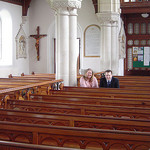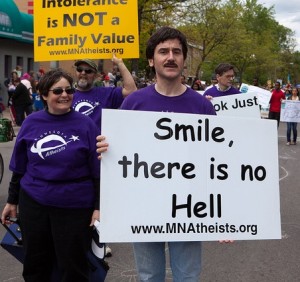
It’s a fact that, in the West at least, fewer people are going to religious services than they used to a few decades ago. Countries do follow different trajectories – secularization happened first in the Protestant countries of Northern Europe and Australia, and more recently the Catholic countries of Europe. The Americas have fought the trend, but in both North and South America change is underway.
Erik van Ingen, of Tilburg University and Nienke Moor of the HAN University of Applied Sciences, both in the Netherlands, wanted to know what’s driving these changes. So they turned to that massive international poll on attitudes, the World Value Survey.
Looking at data spanning 1970 to 2009 and from 49 countries from Europe and the Americas, as well as Australia and New Zealand, they were able to establish that there has indeed been a general trend downwards – although some countries like the US have been more or less stable, and in some Eastern European countries it’s risen a little since the end of Communism.
They found that these changes correlated with a bunch of other things that were going on over this period – greater access to university-level education, more urbanization, increased GDP, and longer life expectancy. They also correlated with rising divorce rate and increasing social globalization (personal contact with foreigners, access to information via internet and telephone, and – as a measure of cultural openness – the number of McDonald’s per capita).
Of these, the most influential was education. That matches with some other research has found.
Now so far this is just guilt by association. To see what factors might actually be causing churchgoing to decline, they looked at social and economic changes that occurred 5 or 10 years ahead of changes in attendance.
When they did this, they found that only changes in education and divorce rates (and perhaps life expectancy) could predict future changes in churchgoing.
Then they split their time range into two, to see if relationships between these factors were changing over time. And the first thing they found was that the decline in church attendance is slowing – it was smaller in more recent years (1990-2009) than they were in the period 1970-1989.
What they also found was that, although economic inequality (increasing churchgoing) and urbanization (decreasing it) both had quite big effects from 1970-1989, these factors ceased to play a role in 1990-2009.
The authors speculate that education could stimulate secularisation by showing people competing worldviews, thereby undermining the claim that most religions have to be exclusive holders of fundamental truths. That would fit with other data showing that humanities majors are the most likely to lose their faith during college years.
But they also suggest that the secularization of institutions, such as universities, has been the result of active struggle by secularizing activists. As they put it, a “rather than being about competing world views, this process was motivated by questions of power and authority”
They claim that the link with divorce is because this is an indicator of a process of individualization. And, as the pressure to conform relaxes, people no longer feel constrained to go to church. That’s a similar finding to that reported in US adolescents (see previous post)
I’m a bit concerned about the claims of the importance of individualization, for two reasons. The first is that we know people tell interviewers that they go to church more often than they actually do – and that this inflation of the truth is more widespread where the social expectation is that you go to church.
So maybe what we’re seeing here is not an actual decrease in churchgoing with increasing individualization, but rather a decrease in lying to pollsters about how often you go to church!
Second, even supposing that individualization is playing a real role, I want to know what is driving that trend. Surely it is increased economic security and increased health, which gives people the freedom to start thinking about living independently from their network of family and friends.
Yet it is exactly these material factors that the researchers found not to be so important in driving down churchgoing. They used a statistical technique that made multiple adjustments so they could tease out the effects of different variables, but I wonder whether what has happened is that their ‘individualization’ variable has crowded out the socio-economic ones.
That would explain why other studies, that did not include ‘individualization’, found much stronger socio-economic effects on secularization.
But the other really interesting finding was that, although decreasing income inequality and urbanization drove down church attendance from 1970 to 1989, they no longer appear to be doing so. Perhaps that’s because urbanization has not changed so much recently, and income inequality is drifting up.
Maybe that’s the reason church attendance rates in Western countries have been flatlining recently?
![]() Subscribe to Epiphenom on Reddit
Subscribe to Epiphenom on Reddit
![]() van Ingen, E., & Moor, N. (2015). Explanations of changes in church attendance between 1970 and 2009 Social Science Research, 52, 558-569 DOI: 10.1016/j.ssresearch.2015.04.004
van Ingen, E., & Moor, N. (2015). Explanations of changes in church attendance between 1970 and 2009 Social Science Research, 52, 558-569 DOI: 10.1016/j.ssresearch.2015.04.004















